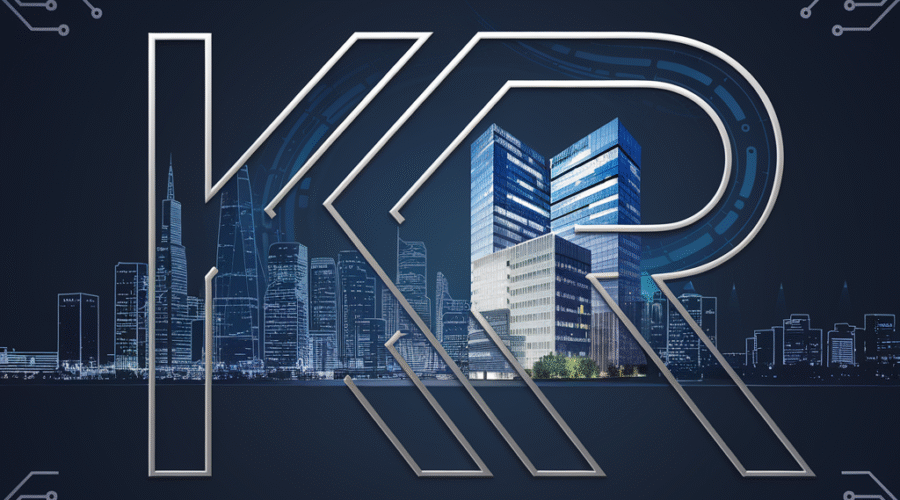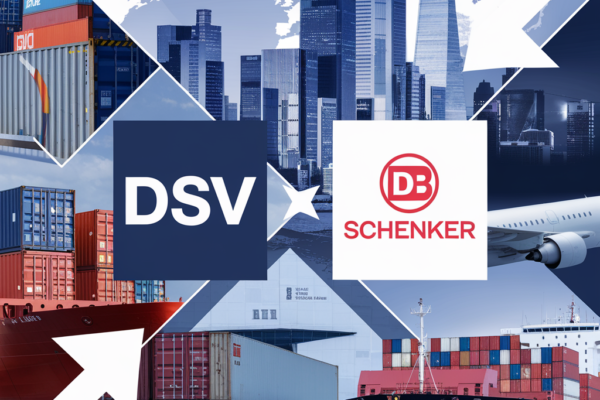In a landmark transaction underscoring private equity’s growing appetite for European digital infrastructure assets, Kohlberg Kravis Roberts & Co. (KKR) announced on April 16, 2025, its €450 million ($513 million) acquisition of German IT services provider Datagroup SE. The deal, structured through a public purchase offer at €54 per share, delivers a 33% premium to shareholders while positioning KKR to capitalize on the digital transformation needs of Germany’s Mittelstand companies[1][3][4]. This acquisition marks KKR’s third major European investment in seven days, following its £1.6 billion Assura Plc purchase and €2.5 billion Karo Healthcare deal, demonstrating the firm’s aggressive deployment of its €100 billion European Fund VI amid market volatility[4][6][8].
Transaction Architecture and Market Implications
Deal Mechanics and Shareholder Dynamics
The transaction’s structure reveals sophisticated alignment between KKR and Datagroup’s founding Schaber family. Through Dante Beteiligungen SE, KKR will acquire all outstanding shares via a two-pronged approach: a public tender offer for minority holdings and a separate transfer of Max H.-H. Schaber’s 54.4% stake to a jointly controlled holding company[3][4]. This dual mechanism ensures KKR secures operational control while maintaining Schaber’s strategic involvement, critical given his deep industry connections within Germany’s SME sector. The €54 per share valuation represents a 12.5x EBITDA multiple based on Datagroup’s projected 2025 EBITDA of €45-48 million, aligning with recent European IT services transactions[4][7].
Financing and Regulatory Considerations
Unlike many leveraged buyouts constrained by rising interest rates, KKR structured this as an all-equity transaction through its European Fund VI, bypassing traditional debt markets[4][6]. This self-funding capability proved decisive in outpacing rival bidders, particularly given current bank reticence toward leveraged IT sector deals. The German Federal Financial Supervisory Authority (BaFin) is expected to approve the deal by Q3 2025, with no significant antitrust concerns due to Datagroup’s regional focus and KKR’s limited existing IT services holdings in DACH markets[3][8].
Strategic Rationale and Operational Synergies
Digital Infrastructure Play
KKR’s Laura Schroeder emphasized the acquisition as a cornerstone of their European digital infrastructure strategy, targeting the €120 billion German IT services market growing at 6.4% CAGR[4][8]. Datagroup’s hybrid cloud solutions and managed services for 15,000 Mittelstand clients complement KKR’s existing portfolio companies like French cloud provider OVHcloud. Initial synergy estimates project €25-35 million in cost savings through shared service centers and procurement optimization, with additional revenue synergies from cross-selling cybersecurity solutions through KKR’s DarkTrace partnership[6][8].
Founder-Led Transition Strategy
The unique governance structure preserving Schaber family influence through joint holding company control addresses critical succession planning challenges. Current CEO Andreas Baresel will transition to Chairman, while KKR plans to install former IBM Europe executive Claudia Schmidt as operational lead, leveraging her experience integrating T-Systems’ cloud division[3][6]. This balanced approach aims to maintain entrepreneurial agility while injecting global best practices in enterprise sales and SaaS product development.
Market Reaction and Sector Impact
Immediate Financial Consequences
Datagroup shares surged 31% to €53.40 on announcement, nearing the offer price and adding €105 million to market capitalization[4][6]. The deal triggered reevaluation of peer valuations, with Bechtle AG and Cancom SE seeing 5-7% price increases. Goldman Sachs analysts upgraded the European IT services sector to “Overweight,” citing increased M&A optionality and KKR’s validation of underlying asset values[4][7].
Broader M&A Implications
This transaction exemplifies private equity’s pivot toward “essential digitalization” plays amid economic uncertainty. Since January 2025, European IT services M&A volume reached €18.7 billion, with PE firms accounting for 63% of deals compared to 41% in 2024[6][8]. Notable comparable transactions include Bain Capital’s €1.1 billion acquisition of Spanish IT firm Indra Sistemas and EQT’s take-private of Finland’s Tietoevry, both featuring similar founder partnership structures[4][8].
Leadership and Organizational Integration
Governance Model Innovation
The novel joint control agreement between KKR and Schaber’s HHS Beteiligungsgesellschaft establishes a template for founder-PE collaborations. The holding company structure includes veto rights on strategic decisions and a two-year moratorium on domination agreements, ensuring operational continuity[3][6]. This model contrasts with KKR’s typical 100% buyout approach, reflecting lessons learned from challenged integrations like the 2022 Cloudera acquisition.
Workforce and Cultural Considerations
With 3,700 employees across 22 German locations, cultural integration poses significant challenges. KKR plans to implement its proprietary Talent Accelerator Program, successfully deployed at Epicor Software, focusing on upskilling cloud architects and AI specialists. Early commitments include maintaining all service centers through 2027 and investing €15 million in employee stock ownership plans[3][6].
Future Outlook and Strategic Recommendations
This acquisition positions KKR to capitalize on three converging trends: accelerated cloud migration among German SMEs (projected 28% CAGR through 2030), increasing cybersecurity regulation, and generational leadership transitions in family-owned Mittelstand firms[4][8]. Near-term priorities include integrating Datagroup’s SAP S/4HANA implementation expertise with KKR portfolio company LeanIX’s enterprise architecture management tools, creating a differentiated ERP transformation offering.
For CEOs evaluating similar partnerships, key takeaways include: 1) Structuring earn-outs tied to cloud revenue growth rather than EBITDA multiples, 2) Negotiating joint governance models to preserve founder expertise, and 3) Leveraging PE partners’ global networks for international expansion while maintaining domestic operational focus. As Schroeder noted, “This isn’t about financial engineering—it’s about building Germany’s next cloud champion”[4][8].
The Datagroup acquisition underscores KKR’s ability to execute complex transactions in volatile markets while delivering the strategic depth typically associated with corporate buyers. As European IT services consolidation accelerates, this deal may be remembered as the catalyst that brought private equity into the heart of Europe’s digital transformation narrative.
Sources
https://www.law360.com/articles/2326195/kkr-to-buy-german-it-co-datagroup-in-513m-deal, https://www.newsnow.com/us/World/Europe/Western+Europe/Germany, https://www.datagroup.de/en/news/datagroup-enters-into-an-investment-agreement-with-and-supports-a-public-purchase-offer-of-kkr-at-a-price-of-eur-54-00-per-share-in-cash/, https://www.marketscreener.com/quote/stock/DATAGROUP-SE-486710/news/KKR-acquires-German-IT-firm-Datagroup-for-around-500-million-49626452/, https://www.investing.com/news/stock-market-news/kkr-reportedly-near-acquisition-of-it-firm-datagroup-93CH-3986512, https://www.webull.com/news/12652997728584705, https://www.gurufocus.com/news/2781218/kkr-eyes-acquisition-of-germanys-datagroup, https://www.ainvest.com/news/kkr-acquires-datagroup-se-33-premium-market-volatility-2504/





